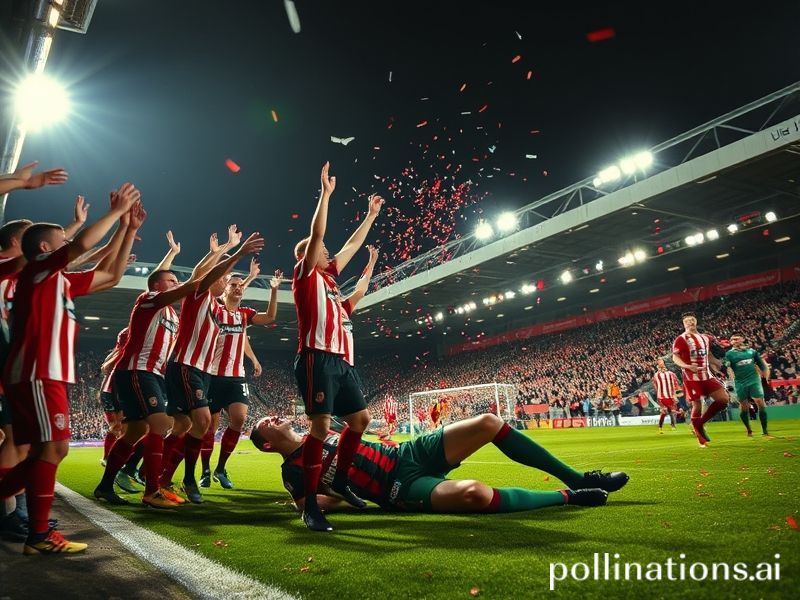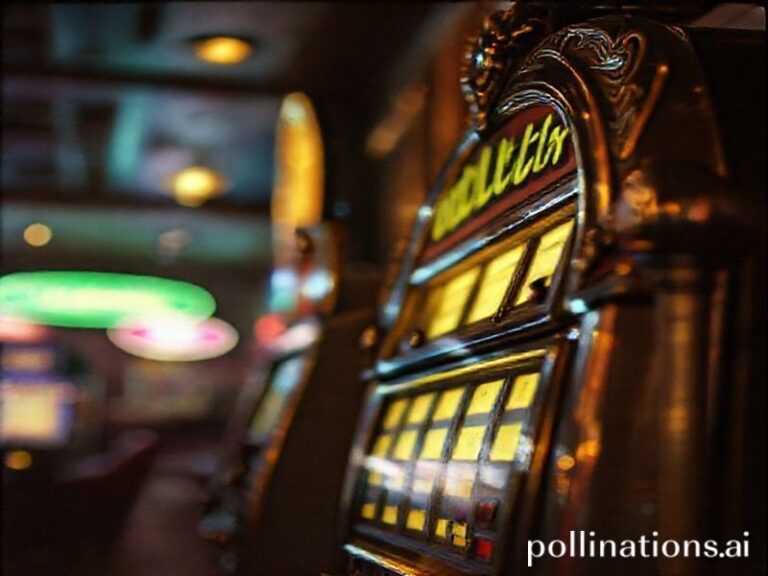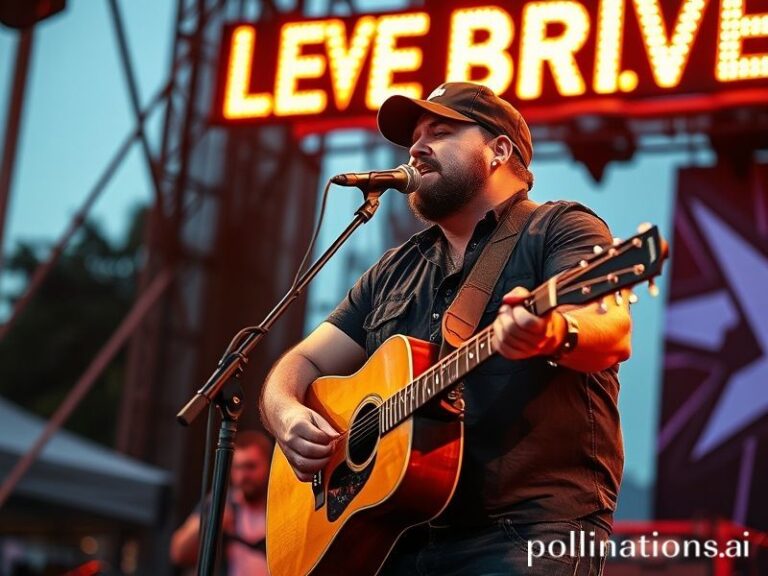When Nottingham Forest Met Sunderland: A Globalized Grudge Match for the Streaming Age
Nottingham Forest vs Sunderland: A Tale of Two Post-Industrial Cities Reduced to Globalized Gladiators for Our Weekend Entertainment
By Correspondent-at-Large, Dave’s Locker
LONDON—Somewhere between the IMF’s latest plea for “fiscal prudence” and Elon Musk’s latest plea for attention, two proud English cities best known for closed pits and cancelled car factories will re-enact their ancient grievances on a rectangle of grass. On Saturday, Nottingham Forest and Sunderland meet in the FA Cup quarter-final—an event that, on paper, is a domestic footnote. Yet on the planet-sized spreadsheet we now call culture, the fixture is a perfect cell: a tiny, flashing reminder that globalization has turned even the most parochial grudge match into a streaming commodity.
Both clubs once fed entire towns—literally, in the days when Saturday wages were paid in cash and pubs served as HR departments. Now they feed an ecosystem: American private-equity barons, Qatari data-analytics firms, and Singaporean betting syndicates who’ve never been to Mansfield or Seaham but can tell you Alex Pritchard’s heat map by heart. The match will be broadcast live in 156 territories, including Tajikistan, where viewers presumably wonder why the side in garish red insists on passing backwards under minimal pressure.
Forest, current residents of the Premier League’s panic room, arrive with the weary dignity of a family that’s finally moved out of the caravan only to discover the new house is on fire. Their owner, Evangelos Marinakis—Greek shipping magnate, Olympiacos overlord, and alleged maestro of maritime mischief—has pumped in money the way one pumps bilge: urgently and with limited regard for environmental impact. The club’s TikTok channel, run by a 23-year-old from Kansas who learned English via Peaky Blinders memes, boasts 2.7 million followers, most of whom believe Brian Clough is a brand of artisanal gin.
Sunderland, meanwhile, have become Netflix’s favourite poverty safari: three seasons of “Sunderland ‘Til I Die,” a documentary series that turned chronic mismanagement into binge-worthy tragicomedy. The cameras left last year, but the hangover remains. Kyril Louis-Dreyfus—the 26-year-old Franco-Swiss heir who looks like he’s accidentally wandered out of a Bottega Veneta ad—has stabilized the finances, proving once again that the best way to run a football club is to have inherited a cereal fortune. Their fans, stoic descendants of miners who once brought down governments, now politely applaud Expected Goals ratios.
The tactical subplot is equally postmodern. Forest’s manager, Nuno Espírito Santo, has the haunted air of a man who knows VAR is reading his diary. Across the technical area stands Mike Dodds, Sunderland’s interim coach, whose primary qualification appears to be that he hasn’t yet been sacked. Between them lies the philosophical abyss: possession versus counter, Europe versus Netflix, hedge fund versus trust fund.
But the wider world watches less for tactics than for anthropology. In Jakarta, ride-hailing drivers huddle round cracked screens, swapping Superbru predictions the way their grandfathers traded cloves. In Lagos, a viewing party will serve jollof rice in Forest-red bowls, oblivious to the culinary irony. And in a WeWork overlooking Central Park, an analyst for Sixth Street Partners will toggle between the match and a Zoom on distressed European debt, mentally filing both under “legacy assets.”
Should Forest win, the global brand consultants will trumpet “momentum for continental qualification,” ignoring that the continent in question is still trying to agree on a joint military budget. Should Sunderland triumph, the streaming platforms will commission a fourth season before the final whistle echoes. Either way, the stadium will empty, the pubs will close, and two sets of supporters will return to economies that treat them as rounding errors. The world will spin on, slightly more entertained, slightly more indebted, and none the wiser.
All of which proves the enduring theorem of late capitalism: it doesn’t matter who owns the means of production, so long as the production value is 4K HDR with Dolby Atmos. Enjoy the match.







